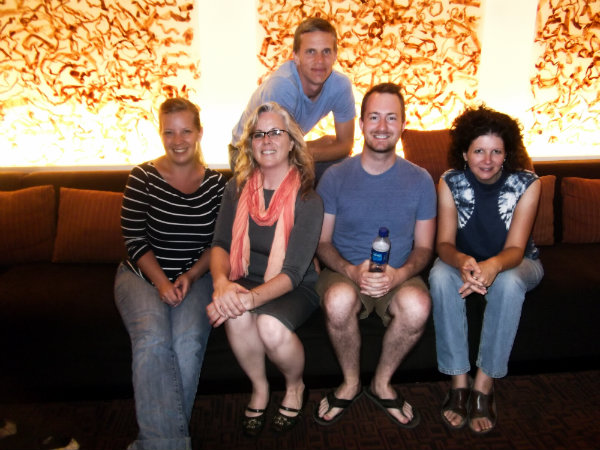When I was offered the opportunity to travel to El Salvador with World Vision, I didn’t entirely know what to expect. I knew it wouldn’t be sun and sand and margaritas, but despite the itinerary I received and my discussions with Britt Hamilton, the Advocacy Communications Officer, I still didn’t really know what I would be doing and seeing every day.
I braced myself for the worst; I’m familiar with and frequently exposed to poverty in the Canadian context, but poverty in a place with no social net, lack of access to clean water, sanitation, and nutrition, and few opportunities for a person to break out of the cycle of poverty would be new to me.
They work so hard, and they are paid so little.
According to World Bank, the under-five mortality rate in Canada in 2012 was five per 1,000. In El Salvador, the number was 16 per 1,000, and the majority of children under five who die are children under one year old; 50% of those are less than one month old. Families in El Salvador are complex; several of the kids we met belonged to families where their maternal guardian was not their birth mother because she had died within days of giving birth.
The majority of children under five who die are children under one year old; 50% are less than one month old.
Poverty is a cause and an effect of so many of the issues here in El Salvador; there is no one simple solution – the very poor here cannot be told to simply pull themselves up by their bootstraps and work harder, because they are working as hard as they can and it is costing them the opportunities that would help them transcend poverty and find a home in the middle class. They work so hard, and they are paid so little; children as young as five or six work to help provide for their families, contributing an income that enables the families to merely survive. Thriving is secondary, and sometimes out of reach.
There are so many more layers to this problem than I had even imagined, and after five days here I have just a snapshot of what life is like for people in extreme poverty. But I’m leaving with stories, some of them hopeful, some of them grim and crushing, but all of them told by the people who live here, the ones who are helping and the ones who need help. I’m looking forward to sharing them all with you.
Thriving is secondary, and sometimes out of reach.
In the meantime, I want to express my sincerest thanks to World Vision Canada, to Britt and Cheryl and Elizabeth and Ryan and Natalia and Paul, and to Visión Mundial El Salvador and Laura and Eugenia and Katia, and the many people working in Area Development Projects in all of the communities we visited – I hope I haven’t missed anyone. I am better for having met these brilliant and caring people and am proud and grateful to have been invited on this trip.
Visiting El Salvador has been exhausting and illuminating and fattening and wonderful, and I can’t wait to get back here someday. Over the next couple of months, I’ll be sharing what I learned about key issues relating to children in the developing world with a focus on El Salvador and how all of us can help; I hope you’ll stay tuned.

Leave a Reply